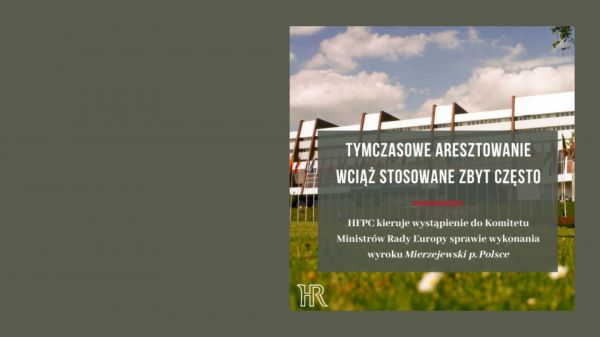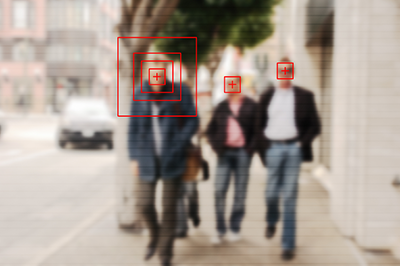
The Helsinki Foundation for Human Rights has sent a communication to the Council of Europe’s Committee of Ministers, commenting on the case Mierzejewski v. Poland. In the Foundation’s opinion, the measures implemented by Poland to execute the Mierzejewski judgment are insufficient.
According to the HFHR, pre-trial detention is used too often in Poland and changes are needed to address this situation. A broad national discussion is necessary to this end, the Foundation argues. Last year’s HFHR report The Trials of Pre-trial Detention presents a number of relevant recommendations.
The judgment in Mierzejewski v. Poland
In its November 2014 judgment delivered in the case of Mierzejewski v. Poland, the ECtHR assessed the practical application of pre-trial detention in Poland. Mr Mierzejewski, the applicant, was held in pre-trial detention for three years, three months and one day. The applicant was detained in 2010 on charges of drug trafficking and participation in an organised criminal group. His detention has been repeatedly extended until the end of his criminal trial in 2014.
The Strasbourg Court held that the grounds invoked by domestic authorities in the pre-trial detention orders issued against the applicant, namely the high probability that he had committed the imputed offence, the fear that he would obstruct the proceedings and – later – the severity of penalty faced by the applicant, were relied on incorrectly and could not justify the overall period of the applicant’s detention. The above Court’s assessment was unaffected by the complexity of the applicant’s case resulting from the criminal group charges made against him. The Court awarded to the applicant EUR 2,500.00 under the head of non-pecuniary damage.
The Committee of Ministers of the Council of Europe has been supervising its execution since the date of the judgment becoming final.
A judgment in Strasbourg is not the end!
Currently, the CoE Committee of Ministers considers that the judgment is yet to be executed by Polish authorities. However, in December 2019, the Government of Poland presented a final report in which it expressed the hope that the general measures taken would be a sufficient basis for discontinuing the Committee’s supervision of the implementation of the Mierzejewski judgment. The Committee may resolve to do so at its next meeting, scheduled for early March 2020.
The Helsinki Foundation for Human Rights has requested that the CoE should refrain from making such a decision. In the Foundation’s assessment, the conclusion that Mierzejewski has been implemented would be premature as the current practical application of pre-trial detention raises a number of concerns as shown by statistical data. Indeed, according to statistics, the number of persons in pre-trial detention has significantly increased over the last five years (from 4,162 at the end of 2015 to 8,520 at the end of 2019). The gravity of the problem is also demonstrated by the percentage of pre-trial detainees in the general prison population, which has risen alarmingly, from 5.88% in 2015 to 11.49% in December 2019.
As the Foundation argues, the recent statistics seem to suggest that the problem with the application of pre-trial detention is likely to exacerbate even further, since in a one-year period (December 2018-December 2019) the number of persons in pre-trial detention increased by more than 1,100. In its communication, the HFHR cited recent NGO research (own report The Trials of Pre-trial Detention and a study by the Court Watch Poland Foundation), as well as recommendations and observations of international bodies.
Pre-trial detention procedures should be improved based on a broad discourse
Irrespective of the upcoming Committee’s decision, a wider national discussion is needed to identify the changes that need to be made in order to ensure an actual decrease in the number of pre-trial detainees and the duration of pre-trial detention. The Helsinki Foundation has presented a list of detailed recommendations in the 2019 report.
The key proposals included:
- The “severe penalty that the accused may face upon conviction” (Article 258 § 2 of the Code of Criminal Procedure) should no longer serve as a ground for pre-trial detention since this “easy-to-use” rationale is invoked to substantiate an overwhelming majority of pre-trial detention orders;
- House arrest and/or electronic monitoring should be added to the list of preventive measures given in the Code of Criminal Procedure. Also, the consecutive application of several non-custodial measures should be allowed;
- The law should provide for higher awards of compensation for moral and financial losses resulting from unlawful detention.


